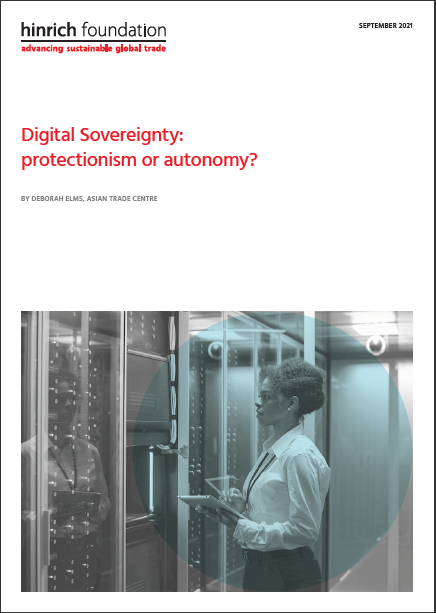Published 28 September 2021
Increasingly aware of the value of their citizens' data, governments are seeking to territorialize and localize data for national benefit. But digital sovereignty has not been evaluated with a critical eye. Restrictions on data flows act as non-tariff barriers to trade, curb stronger global cybersecurity efforts, and threaten to amplify existing inequalities in development.
Regulatory regimes around the world are pushing to claim jurisdiction over data. Informed by “data sovereignty,” governments are coming to see data as a commodity like any other – one that needs to be owned, controlled, and protected. Such an approach to regulation can complicate and fragment the global digital economy, in which data freely crosses borders for processing or storage. The spread of digital or data sovereignty as a perceived virtue may radically alter the future digital trends that appear to be unstoppable.
The vigor with which major economies – including Europe, India, China, and beyond – are pursuing data sovereignty policies is concerning, particularly as research on the issue is still emerging. Policymakers are proposing regulations without understanding their inevitable effect – an internet with borders that threatens to reverse trends in growth and equity. A world wherein data cannot cross borders is one where international trade is more difficult, communication is more inconvenient, and opportunities shrink.
This paper by Dr. Deborah Elms of Asian Trade Centre discusses the potential consequences of data sovereignty regulation in Asia and the Pacific. Policies seeking to achieve digital sovereignty are fraught with risks, with small economies and businesses bearing the brunt.
© The Hinrich Foundation. See our website Terms and conditions for our copyright and reprint policy. All statements of fact and the views, conclusions and recommendations expressed in this publication are the sole responsibility of the author(s).







